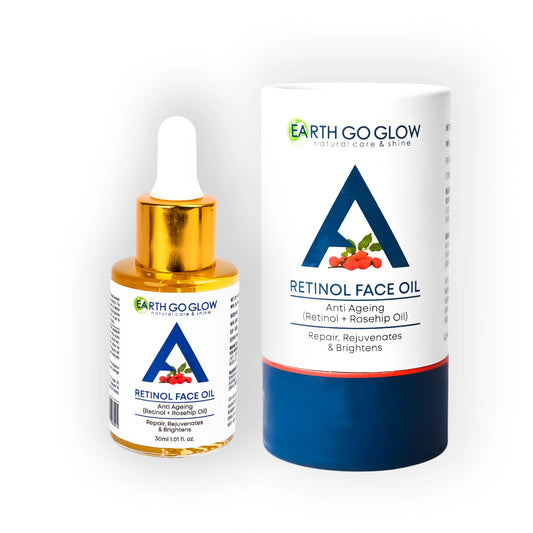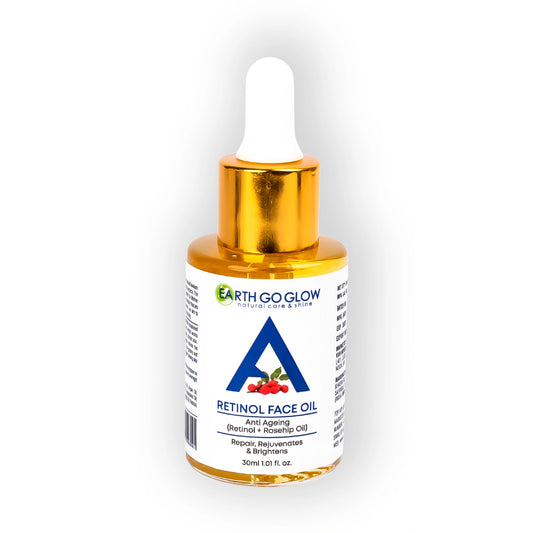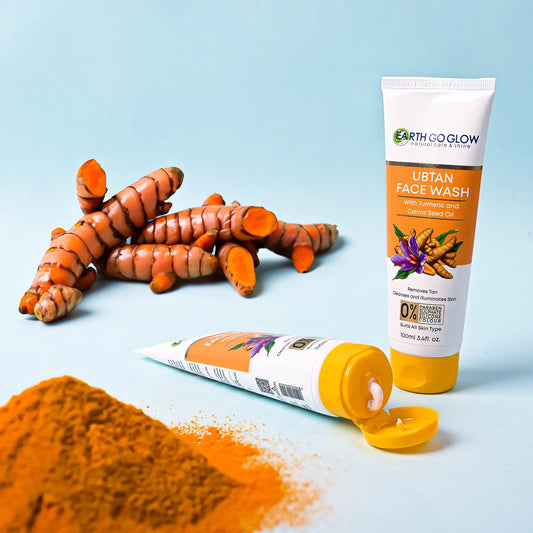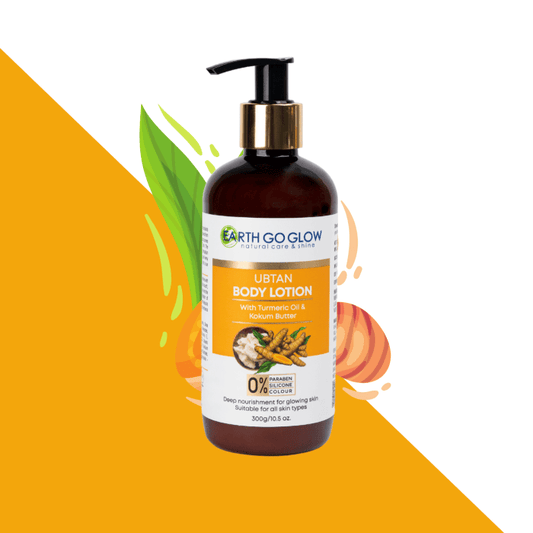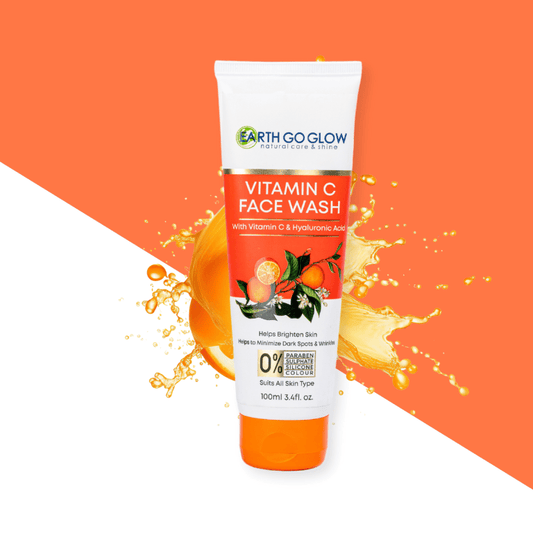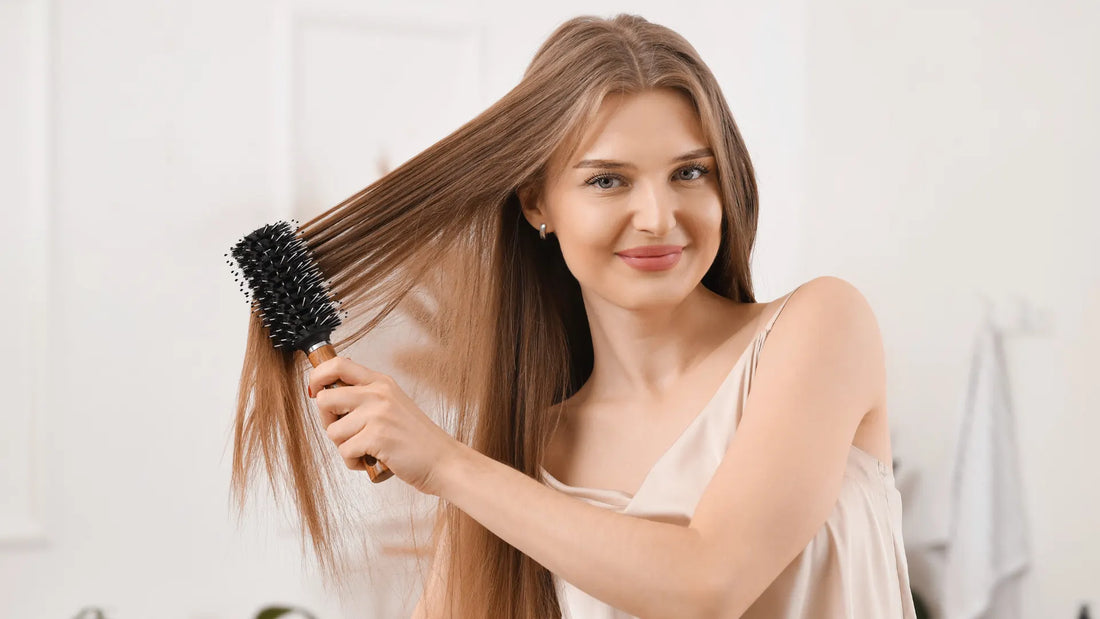
Why You Need to Take Care of Your Hair
Share
Hair care is an essential aspect of personal hygiene and overall well-being. It is not just about aesthetics but also about maintaining the health and strength of your hair. In this comprehensive article, we will delve into the various reasons why taking care of your hair is crucial, the benefits of using quality hair care products, and practical tips for maintaining healthy hair. We will also explore the significance of ingredients like Bhringraj, almond, avocado, and argan oils in hair care, as featured in our 10-in-1 Hair Oil.
- Protection from Environmental Damage
Every day, our hair is exposed to a myriad of environmental aggressors such as UV rays, pollution, and harsh weather conditions. These factors can weaken the hair shaft, leading to dryness, brittleness, and breakage. Let's explore how environmental damage affects hair and how proper hair care can mitigate these effects.
1.1. UV Radiation
Ultraviolet (UV) radiation from the sun can cause significant damage to the hair. UV rays break down the protein structure of the hair, leading to weakened strands and increased susceptibility to breakage. Over time, excessive sun exposure can result in hair becoming dry, frizzy, and discolored.
1.2. Pollution
Air pollution contains particulate matter and harmful chemicals that can settle on the scalp and hair. These pollutants can clog hair follicles, leading to scalp issues such as dandruff, itching, and even hair loss. Additionally, pollutants can strip the hair of its natural oils, causing dryness and dullness.
1.3. Weather Conditions
Extreme weather conditions, such as excessive heat, cold, and humidity, can take a toll on the hair. Hot weather can cause the hair to become dry and brittle, while cold weather can make it prone to breakage. Humidity, on the other hand, can lead to frizz and unmanageable hair.
1.4. Mitigating Environmental Damage
To protect your hair from environmental damage, it is essential to adopt a hair care routine that includes products with protective and nourishing properties. Our 10-in-1 Hair Oil, enriched with Bhringraj, almond, avocado, and argan oils, provides a protective barrier against UV radiation and pollution. These ingredients not only shield the hair but also nourish and repair it, keeping it healthy and resilient.
- Prevention of Hair Problems
Preventing hair problems is easier and more effective than treating them once they occur. A consistent hair care routine can help prevent issues such as dandruff, split ends, and hair loss. Let's discuss common hair problems and how proper care can prevent them.
2.1. Dandruff
Dandruff is a common scalp condition characterized by flaking and itching. It is often caused by a dry scalp, fungal infections, or sensitivity to hair care products. Regularly using anti-dandruff shampoos and moisturizing the scalp can help prevent dandruff.
2.2. Split Ends
Split ends occur when the hair's protective outer layer, the cuticle, is damaged, causing the hair to split into two or more strands. This can be caused by excessive heat styling, chemical treatments, and mechanical damage. Preventing split ends involves minimizing the use of heat styling tools, using protective products, and regularly trimming the hair.
2.3. Hair Loss
Hair loss can be caused by various factors, including genetics, hormonal imbalances, and stress. However, poor hair care practices can also contribute to hair loss. To prevent hair loss, it is crucial to maintain a healthy scalp, avoid tight hairstyles that pull on the hair, and use products that strengthen the hair roots.
2.4. Benefits of Preventive Hair Care
By adopting preventive hair care practices, you can avoid common hair problems and maintain healthy, beautiful hair. Our 10-in-1 Hair Oil, with ingredients like Bhringraj and almond oil, strengthens the hair roots and nourishes the hair, preventing issues such as dandruff, split ends, and hair loss.
- Boosting Confidence
Healthy, well-maintained hair can significantly boost your confidence and self-esteem. When your hair looks good, you feel good. Let's explore how healthy hair contributes to overall confidence and well-being.
3.1. Psychological Impact of Hair
Hair plays a crucial role in our self-image and identity. A good hair day can enhance your mood and make you feel more confident. On the other hand, bad hair days can negatively impact your self-esteem and overall demeanor.
3.2. Social and Professional Perception
Healthy, well-groomed hair is often associated with good personal hygiene and self-care. In social and professional settings, having well-maintained hair can leave a positive impression and boost your confidence in interactions.
3.3. Personal Satisfaction
Taking care of your hair and seeing the positive results can provide a sense of accomplishment and satisfaction. It can motivate you to maintain a consistent hair care routine and take pride in your appearance.
3.4. Enhancing Confidence with 10-in-1 Hair Oil
Our 10-in-1 Hair Oil, enriched with avocado and argan oils, adds shine and vitality to your hair, making it look vibrant and full of life. This natural glow can enhance your overall appearance, making you feel more confident in social and professional settings.
- Improving Hair Health
Tailoring your hair care routine to your specific needs can dramatically improve the health of your hair. Whether you have dry, oily, or damaged hair, using the right products can address these concerns effectively. Let's discuss the importance of personalized hair care and how it can improve hair health.
4.1. Understanding Your Hair Type
Identifying your hair type is the first step in developing a personalized hair care routine. Hair types can be broadly categorized into straight, wavy, curly, and coily, each with its unique characteristics and needs.
4.2. Addressing Specific Hair Concerns
Different hair types have different concerns that need to be addressed. For example:
- Dry Hair: Needs intense hydration and moisture retention to prevent breakage and frizz.
- Oily Hair: Requires balancing products to control excess oil production without stripping the hair of its natural oils.
- Damaged Hair: Needs repairing and strengthening treatments to restore health and resilience.
4.3. Benefits of Personalized Hair Care
Personalized hair care ensures that your hair receives the specific nutrients and treatments it needs. This can lead to improved hair texture, reduced breakage, and overall healthier hair.
4.4. How Our 10-in-1 Hair Oil Improves Hair Health
Our 10-in-1 Hair Oil provides a comprehensive solution with its blend of nourishing ingredients that repair, protect, and enhance your hair's natural beauty. Whether you have dry, oily, or damaged hair, this versatile oil addresses multiple concerns, leaving your hair healthy and vibrant.
- A Moment of Self-Care
Incorporating hair care into your daily routine can be a relaxing and rewarding experience. Taking a few minutes each day to pamper your hair can reduce stress and provide a sense of routine and normalcy. Let's explore the importance of self-care and how hair care fits into this practice.
5.1. The Role of Self-Care in Well-Being
Self-care involves taking deliberate actions to maintain and improve your physical, mental, and emotional health. It is an essential aspect of overall well-being and can help reduce stress, improve mood, and enhance quality of life.
5.2. Hair Care as a Form of Self-Care
Hair care can be a simple yet effective form of self-care. Taking time to nourish and pamper your hair can provide a sense of relaxation and rejuvenation. It can also help establish a daily routine, which can be grounding and comforting.
5.3. Benefits of a Relaxing Hair Care Routine
A relaxing hair care routine can:
- Reduce stress and anxiety.
- Provide a sense of accomplishment and satisfaction.
- Enhance your overall well-being and self-esteem.
5.4. Incorporating Our 10-in-1 Hair Oil into Your Self-Care Routine
Our 10-in-1 Hair Oil is designed to provide a luxurious and pampering experience. The rich blend of Bhringraj, almond, avocado, and argan oils nourishes and revitalizes your hair, making it a perfect addition to your self-care routine. Take a few minutes each day to massage the oil into your scalp and hair, and enjoy the soothing and relaxing benefits it offers.
- The Benefits of Natural Ingredients in Hair Care
Natural ingredients have been used in hair care for centuries due to their nourishing and healing properties. Let's explore the benefits of natural ingredients like Bhringraj, almond, avocado, and argan oils, which are featured in our 10-in-1 Hair Oil.
6.1. Bhringraj
Bhringraj, also known as Eclipta prostrata, is an Ayurvedic herb renowned for its hair-strengthening properties. It is known to:
- Strengthen hair roots and reduce hair fall.
- Promote healthy hair growth.
- Prevent premature greying.
- Soothe and nourish the scalp.
6.2. Almond Oil
Almond oil is rich in vitamins E and D, which are essential for healthy hair. It helps to:
- Nourish and soften the hair.
- Improve hair texture and manageability.
- Prevent split ends and breakage.
- Add shine and luster to the hair.
6.3. Avocado Oil
Avocado oil is packed with essential fatty acids and vitamins that deeply moisturize and nourish the hair. It provides:
- Intense hydration to dry and brittle hair.
- Natural shine and vitality.
- Protection against environmental damage.
- Strengthening of the hair shaft.
6.4. Argan Oil
Argan oil, often referred to as "liquid gold," is rich in antioxidants, vitamins, and essential fatty acids. It offers numerous benefits, including:
- Repairing and protecting the hair from damage.
- Reducing frizz and improving manageability.
- Adding softness and shine.
- Preventing split ends and breakage.
- Practical Tips for Maintaining Healthy Hair
Maintaining healthy hair requires consistent care and attention. Here are some practical tips to help you achieve and maintain healthy, beautiful hair.
7.1. Regular Washing
Washing your hair regularly helps to remove dirt, oil, and product buildup from the scalp and hair. Use a gentle shampoo that suits your hair type and follow up with a conditioner to keep your hair hydrated and manageable.
7.2. Avoiding Excessive Heat
Excessive use of heat styling tools can damage the hair and lead to breakage and split ends. Limit the use of blow dryers, flat irons, and curling irons, and always use a heat protectant spray before styling.
7.3. Protecting Hair from the Sun
Protect your hair from UV damage by wearing a hat or using hair products with UV filters when spending time in the sun. This can help prevent dryness, discoloration, and brittleness.
7.4. Regular Trimming
Regularly trimming your hair helps to remove split ends and keep your hair looking healthy and neat. Aim to trim your hair every 6-8 weeks to maintain its shape and prevent damage.
7.5. Using Quality Hair Care Products
Invest in quality hair care products that are suitable for your hair type and address your specific concerns. Our 10-in-1 Hair Oil, with its blend of nourishing ingredients, provides a comprehensive solution for various hair needs.
7.6. Maintaining a Healthy Diet
A healthy diet rich in vitamins and minerals is essential for healthy hair. Include foods that are high in protein, omega-3 fatty acids, and vitamins A, C, and E in your diet to support hair growth and strength.
7.7. Staying Hydrated
Staying hydrated is crucial for maintaining healthy hair. Drink plenty of water throughout the day to keep your hair and scalp hydrated.
- How Our 10-in-1 Hair Oil Enhances Hair Care
Our 10-in-1 Hair Oil is a versatile and comprehensive solution for various hair care needs. Let's explore how this product enhances your hair care routine and provides multiple benefits.
8.1. Nourishing and Strengthening
The blend of Bhringraj, almond, avocado, and argan oils in our 10-in-1 Hair Oil nourishes and strengthens the hair from root to tip. Bhringraj strengthens hair roots, reducing hair fall and promoting healthy growth, while almond oil nourishes and softens the hair, adding a silky texture.
8.2. Moisturizing and Adding Shine
Avocado oil deeply moisturizes the hair, adding natural shine and vitality. This helps to combat dryness and brittleness, leaving your hair looking vibrant and healthy.
8.3. Repairing and Protecting
Argan oil in our 10-in-1 Hair Oil repairs and protects the hair against damage. It reduces frizz, improves manageability, and prevents split ends and breakage, leaving your hair smooth and manageable.
8.4. Versatile Use
Our 10-in-1 Hair Oil can be used in various ways to enhance your hair care routine. It can be applied as a pre-shampoo treatment, a leave-in conditioner, or a styling product. This versatility makes it a valuable addition to any hair care regimen.
The Importance of Hair Care: A Comprehensive Guide
Introduction
Hair care is an essential aspect of personal grooming and overall health. While often considered merely a cosmetic concern, maintaining healthy hair goes beyond aesthetics. It involves a combination of practices aimed at keeping your hair clean, nourished, and protected from damage. In this comprehensive guide, we will delve into the importance of hair care, exploring various factors that affect hair health and offering detailed advice on how to maintain beautiful, healthy hair. From understanding the structure of hair to recognizing the impact of diet and lifestyle, this article will provide you with all the information you need to elevate your hair care routine.
Understanding Hair Structure and Growth
To appreciate the importance of hair care, it’s crucial to understand the basic structure of hair and how it grows. Hair is composed of keratin, a protein that forms the structural foundation of the hair shaft. Each strand of hair consists of three layers:
- Cuticle: The outermost layer, made up of overlapping cells that protect the inner layers.
- Cortex: The middle layer, which contains the pigment (melanin) that gives hair its color and contributes to its strength and elasticity.
- Medulla: The innermost layer, present in thicker hair types and responsible for the hair's thickness.
Hair growth occurs in cycles, consisting of three phases:
- Anagen (Growth Phase): This phase lasts between 2-7 years, during which hair grows approximately half an inch per month.
- Catagen (Transition Phase): Lasting about 10 days, this phase marks the end of active hair growth as the hair follicle shrinks.
- Telogen (Resting Phase): This phase lasts about three months. During this time, the hair is released and falls out, and new hair begins to grow in its place.
Understanding these phases can help you recognize the importance of regular hair care to maintain the health and appearance of your hair throughout its growth cycle.
The Role of Hair in Overall Health and Well-being
Hair is not just about appearance; it plays a significant role in protecting the scalp from environmental damage and maintaining body temperature. Healthy hair also contributes to self-esteem and confidence. Here’s how:
- Protection: Hair acts as a barrier against the sun’s harmful UV rays, reducing the risk of skin cancer on the scalp. It also protects the scalp from dust, dirt, and other environmental pollutants.
- Insulation: Hair helps regulate body temperature by trapping heat close to the scalp in cold weather and providing a cooling effect by absorbing sweat in hot weather.
- Psychological Impact: Good hair health is often associated with overall well-being. Healthy, well-maintained hair can boost self-esteem, enhance mood, and improve social interactions.
Common Hair Problems and Their Causes
Various factors can affect hair health, leading to common hair problems such as hair loss, dandruff, and split ends. Understanding the causes of these issues is the first step in addressing them effectively.
Hair Loss
Hair loss, or alopecia, can be caused by several factors, including:
- Genetics: Hereditary hair loss, known as androgenetic alopecia, is the most common cause of hair thinning and baldness.
- Hormonal Changes: Hormonal imbalances, particularly during pregnancy, menopause, and thyroid disorders, can lead to hair loss.
- Nutritional Deficiencies: Lack of essential nutrients like iron, zinc, and vitamins can weaken hair and cause it to fall out.
- Stress: Physical and emotional stress can trigger hair loss by disrupting the hair growth cycle.
- Medical Conditions: Conditions such as alopecia areata, lupus, and diabetes can cause hair loss.
- Medications: Certain medications, including those for cancer, arthritis, depression, and heart problems, can result in hair loss as a side effect.
Dandruff
Dandruff is characterized by flaky, itchy scalp and can be caused by:
- Dry Skin: The most common cause of dandruff, particularly in winter months when the air is dry.
- Oily Skin (Seborrheic Dermatitis): Excess oil on the scalp can create a breeding ground for yeast, leading to dandruff.
- Fungal Infections: Malassezia, a yeast-like fungus, can irritate the scalp and cause dandruff.
- Sensitivity to Hair Products: Certain hair products can irritate the scalp and cause dandruff.
Split Ends
Split ends occur when the hair shaft splits at the tip, often due to:
- Mechanical Damage: Frequent use of hair styling tools like blow dryers, flat irons, and curling irons can cause split ends.
- Chemical Treatments: Hair coloring, perming, and relaxing can weaken the hair and lead to split ends.
- Environmental Damage: Exposure to the sun, wind, and pollution can dry out the hair and cause split ends.
- Improper Hair Care: Rough handling, such as brushing wet hair or using harsh hair ties, can cause split ends.
The Importance of a Proper Hair Care Routine
A proper hair care routine is essential for maintaining healthy, strong, and beautiful hair. Here are the key components of an effective hair care routine:
- Regular Washing
Keeping your scalp and hair clean is crucial for removing dirt, oil, and product buildup. Use a gentle shampoo that suits your hair type and wash your hair regularly, but not excessively, to avoid stripping it of its natural oils.
- Conditioning
Conditioning helps to moisturize and detangle the hair, reducing the risk of breakage and split ends. Use a conditioner after every shampoo and consider deep conditioning treatments once a week for extra nourishment.
- Avoiding Heat Damage
Minimize the use of heat styling tools to prevent damage to the hair shaft. When you do use them, apply a heat protectant spray to reduce the risk of heat damage.
- Regular Trimming
Regular hair trims every 6-8 weeks can help prevent split ends and keep your hair looking healthy and well-groomed.
- Protecting Hair from Environmental Damage
Protect your hair from the sun, wind, and pollution by wearing a hat or using hair products with UV protection. Avoid overexposure to chlorine and saltwater by rinsing your hair before and after swimming.
- Using the Right Hair Products
Choose hair products that suit your hair type and address specific concerns. Look for products that contain natural, nourishing ingredients like Bhringraj, almond oil, avocado oil, and argan oil, which can strengthen, moisturize, and protect your hair.
The Benefits of Natural Ingredients in Hair Care
Using hair care products enriched with natural ingredients can significantly improve the health and appearance of your hair. Let’s explore the benefits of some key natural ingredients:
- Bhringraj
Bhringraj, also known as Eclipta alba, is a powerful herb used in Ayurvedic medicine for its hair-strengthening properties. It promotes hair growth, prevents hair loss, and strengthens hair roots, making it an excellent ingredient for healthy hair care.
- Almond Oil
Almond oil is rich in vitamins E and D, magnesium, and fatty acids, which nourish and soften the hair. It helps to add shine, reduce frizz, and prevent hair breakage, making it a valuable addition to any hair care routine.
- Avocado Oil
Avocado oil is packed with essential fatty acids, vitamins, and antioxidants that moisturize and nourish the hair. It penetrates the hair shaft to provide deep hydration, enhancing the hair’s natural shine and vitality.
- Argan Oil
Argan oil, often referred to as “liquid gold,” is renowned for its repairing and protective properties. It contains high levels of antioxidants, vitamin E, and essential fatty acids, which help to repair damaged hair, reduce split ends, and protect against environmental damage.
Tailoring Your Hair Care Routine to Your Hair Type
Different hair types require different care. Here’s how you can tailor your hair care routine to suit your specific hair type:
- Straight Hair
Straight hair tends to get oily quickly because the natural oils can travel down the hair shaft more easily. Use a lightweight shampoo and conditioner to avoid weighing down your hair. Consider using dry shampoo between washes to control oil and add volume.
- Wavy Hair
Wavy hair is prone to frizz and can be dry at the ends. Use a moisturizing shampoo and conditioner to hydrate your hair and reduce frizz. Avoid over-washing and use a leave-in conditioner or anti-frizz serum to keep your waves defined and smooth.
- Curly Hair
Curly hair is naturally dry because the oils from the scalp have a harder time traveling down the twists and turns of the hair shaft. Use a sulfate-free shampoo to avoid stripping your hair of its natural oils. Deep condition regularly and use a curl-enhancing cream or gel to define your curls.
- Coily Hair
Coily hair is the most fragile hair type and requires extra moisture and gentle handling. Use a hydrating shampoo and a rich conditioner to keep your coils soft and manageable. Detangle your hair with a wide-tooth comb and avoid styles that put too much tension on your hair.
The Impact of Diet and Lifestyle on Hair Health
Your diet and lifestyle play a crucial role in the health of your hair. Here’s how you can support healthy hair from the inside out:
- Balanced Diet
A balanced diet rich in vitamins, minerals, and proteins is essential for healthy hair. Key nutrients for hair health include:
- Protein: Hair is primarily made of keratin, a type of protein. Ensure you’re getting enough protein from sources like lean meats, fish, eggs, beans, and nuts.
- Iron: Iron deficiency can lead to hair loss. Include iron-rich foods like spinach, lentils, and red meat in your diet.
- Omega-3 Fatty Acids: Found in fish like salmon and mackerel, as well as flaxseeds and walnuts, omega-3 fatty acids help keep your hair hydrated and shiny.
- Vitamins A and C: These vitamins are essential for sebum production, which keeps the scalp moisturized. They can be found in fruits and vegetables like carrots, sweet potatoes, and citrus fruits.
- Biotin (Vitamin B7): Biotin is vital for hair growth and can be found in foods like eggs, almonds, and whole grains.
- Zinc: Zinc deficiency can lead to hair loss and a dry, flaky scalp. Include zinc-rich foods like oysters, beef, and pumpkin seeds in your diet.
- Staying Hydrated
Drinking plenty of water is crucial for maintaining healthy hair. Dehydration can lead to dry, brittle hair and a flaky scalp. Aim to drink at least eight glasses of water a day to keep your hair and scalp hydrated.
- Regular Exercise
Exercise improves blood circulation, which in turn stimulates hair follicles and promotes hair growth. Aim for at least 30 minutes of moderate exercise, such as walking, running, or yoga, most days of the week.
- Managing Stress
Stress can have a significant impact on hair health, leading to conditions like telogen effluvium, where hair falls out due to stress. Practice stress-management techniques like meditation, deep breathing exercises, and hobbies you enjoy to keep stress levels in check.
- Avoiding Smoking and Limiting Alcohol
Smoking can restrict blood flow to the hair follicles, leading to hair loss. Alcohol can dehydrate the body, including the hair and scalp, making hair brittle and prone to breakage. Reducing or eliminating these habits can significantly improve hair health.
The Role of Hair Care Products
Choosing the right hair care products is essential for maintaining healthy hair. Here are some tips on selecting the best products for your hair type and needs:
- Shampoos
Look for shampoos that are free of sulfates, parabens, and other harsh chemicals. Choose a shampoo that suits your hair type—moisturizing for dry hair, volumizing for fine hair, and clarifying for oily hair.
- Conditioners
Conditioners help to detangle hair, reduce frizz, and add moisture. Use a conditioner that complements your shampoo and addresses your hair concerns. Deep conditioners and hair masks can provide extra hydration and nourishment.
- Leave-in Treatments
Leave-in treatments, such as serums and sprays, can protect hair from heat, add shine, and reduce frizz. Look for products with ingredients like argan oil, coconut oil, and keratin to strengthen and protect your hair.
- Natural and DIY Products
Natural hair care products, free from synthetic chemicals, can be beneficial for your hair. DIY hair masks made from ingredients like honey, yogurt, and avocado can provide deep nourishment and improve hair health.
Common Hair Care Myths
There are many myths surrounding hair care that can lead to confusion and misinformation. Here are some common myths debunked:
- Cutting Hair Makes It Grow Faster
While trimming your hair regularly can prevent split ends and breakage, it does not affect the speed of hair growth. Hair growth is determined by genetics and overall health.
- Brushing Hair 100 Strokes a Day
Over-brushing can cause hair breakage and damage the scalp. Brush your hair gently and only as needed to detangle and style.
- Washing Hair Every Day
Washing hair every day can strip it of natural oils, leading to dryness and damage. Aim to wash your hair 2-3 times a week or as needed based on your hair type and lifestyle.
- Using Cold Water for Shiny Hair
While cold water can help to seal the hair cuticle, making hair appear shinier, it is not necessary to endure cold showers. Lukewarm water is sufficient for cleansing and maintaining hair health.
- Plucking Gray Hairs Causes More to Grow
Plucking gray hairs does not cause more to grow. However, it can damage the hair follicle, leading to thinning hair or bald spots.

